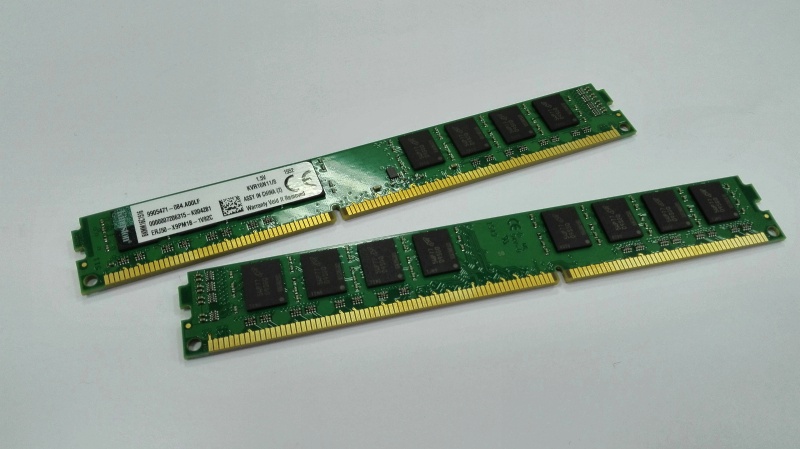memory — Desktop ram work on a server?
Asked
Modified
6 years, 2 months ago
Viewed
1k times
So presently I’m going out to build a fairly nice 8 core PC using older server parts, and I would like to know if I can use my desktop ram in the system. I have already looked this up, but I only find if server ram will work on a desktop. I want to know the other way around. My desktop has ddr2 800 MHz ram.
Just in case it helps:
the motherboard:
The CPU(running two):
http://ark.intel.com/products/37096/Intel-Xeon-Processor-E5506-4M-Cache-2_13-GHz-4_80-GTs-Intel-QPI
- memory
- motherboard
6
I want to build a server which uses a HP 651907-001 Proliant DL160 G6
G7 Enhanced Server Motherboard System Board and install two
Intel® Xeon® Processor E5506
Your underline question appears to be:
My desktop has ddr2 800 MHz ram.
Can I use this memory in my server
instead?I would like to know if I can use my desktop ram in the system?
The HP ProLiant Motherboard only supports DDR3 memory. DDR2 and DDR3 are not compatible with one another. They have different pin layouts. You physically would be unable to install DDR2 modules into a DDR3 module slot without damaging your hardware.
1
As GiantTree has said I can use my ram in the first place as it isn’t compatible. Also after look back I realize this motherboard isn’t what I would end up using anyways. (no SATA from what I can tell, but hey what do I know?)
Thanks btw
«No, you can’t use your Desktop RAM. The motherboard and the CPU’s use
DDR3, DDR2 is completely different and will not work. – GiantTree 8
mins ago»
Sign up or log in
Sign up using Google
Sign up using Facebook
Sign up using Email and Password
Post as a guest
Required, but never shown
Post as a guest
Required, but never shown
By clicking “Post Your Answer”, you agree to our terms of service, privacy policy and cookie policy
Server Memory: Types and Performance
Find a product
Part no.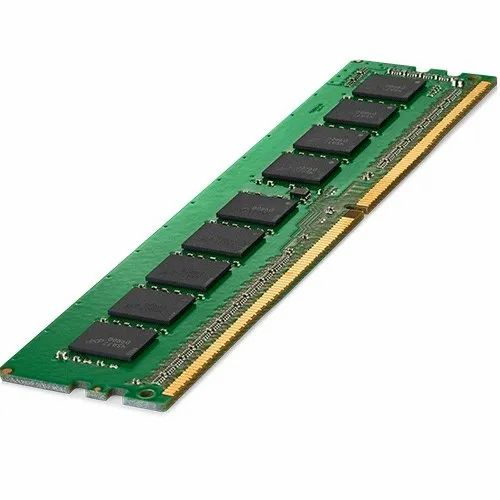 or config ID
or config ID
Sorry. Your search did not match any active Crucial part numbers or configuration IDs.
Find articles and site content
Enter keywords
Sorry. Your search did not match any active Crucial part numbers or configuration IDs.
Memory that is designed to be used in servers comes in several types with different performance profiles.
Server memory is a bit of a misnomer. While server hardware is designed for slightly different uses than PC hardware, as long as the motherboard is compatible, any memory can be used in a PC. Use the Crucial® Advisor™ Tool or System Scanner tool to find memory compatible with your motherboard.
Server and workstation components are designed to not be shut down under normal circumstances and to maintain a higher degree of data integrity than components used in PCs. For those reasons, server components are generally more expensive than PC components. But if you’re building your own PC or looking to upgrade a server and need more robust components with a higher level of data integrity, consider server-level components.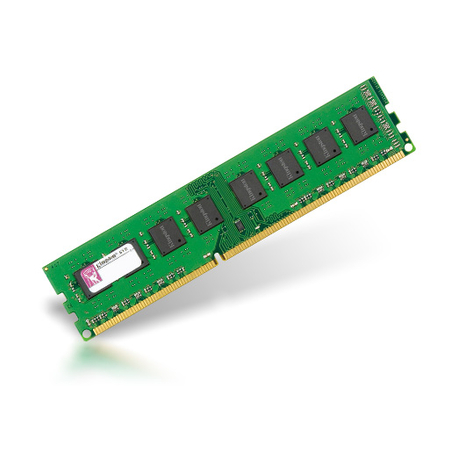 Find out how much memory a server needs.
Find out how much memory a server needs.
ECC and non-ECC Memory
Server and workstation memory can be ECC or non-ECC and registered or unbuffered. ECC stands for error-correcting code. ECC memory has software that corrects errors that can creep in to volatile memory. Mission-critical industries that cannot tolerate data changes rely on ECC memory. ECC memory includes extra memory bits and memory controllers that control the extra bits in an additional chip on the module. ECC memory uses the extra bits to store the ECC code, as well as an encrypted version of the code. When reading data, the system compares both sets of code. If the code that was read doesn’t match the stored code, it’s decrypted by the parity bits to discover and correct the error. Syndrome tables are a mathematical way of identifying these bit errors and then correcting them.
Because most PC memory is non-ECC, errors happen about once per one gigabyte of memory per month of uninterrupted operation.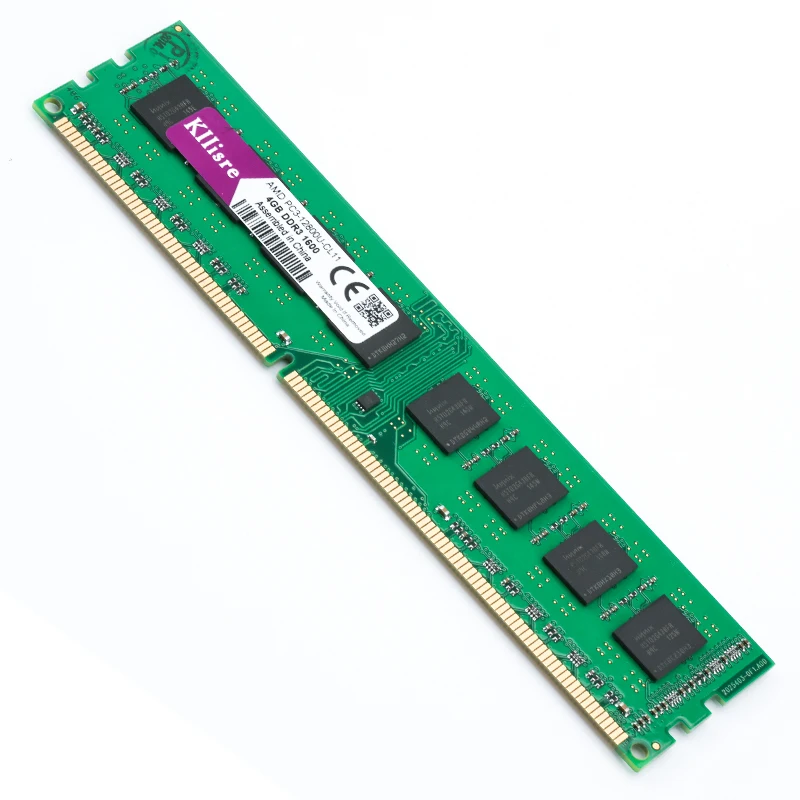 Since most PCs do not operate continuously the way servers do, the chances of an error are not as high.
Since most PCs do not operate continuously the way servers do, the chances of an error are not as high.
Registered and unbuffered memory
Memory can also be registered or unbuffered. Registered memory has a register between the DRAM modules and the memory controller. The register holds requested data for one clock cycle before it’s sent on. This places less electrical load on the memory controller and allow the system to remain stable with more memory modules than would otherwise be possible. This causes a slowdown in data rates. You can increase server performance by choosing memory that interleaves the data across three channels. There are also fully-buffered memory modules, which buffer data lines, in addition to the control lines.
The opposite of registered is unbuffered, meaning that there is no buffer between the system and the DRAM. Buffered is an older term for registered. It is possible to buy unbuffered ECC memory, but its use is limited to very small servers that need an insurance policy against the possibility of flipped bits.
This table shows the combination of ECC, non-ECC, registered, and unbuffered options available for server memory.
How server RAM differs from regular
Category
Beginner sysadmin
Date
December 30, 2019
When looking to upgrade, many users want to opt for a hardware that is designed for devices that are available 24/7, 365 days a year. They believe that it is more reliable, high-quality, and, accordingly, will raise ordinary personal computers to a higher level. Server RAM, in theory, should make an ordinary computer super productive and multitasking. But in practice, everything turns out a little differently.
nine0003
However, server equipment is highly specialized components, plus ordinary or gaming computer devices differ significantly from server equipment in the tasks they solve. Therefore, hardware should be chosen carefully, as the requirements for its characteristics are different. Ordinary PCs must be reliable, and servers must be fault-tolerant, since every minute they receive and process requests, send responses.
Regular RAM
For software to work on personal computers, you need an area where data will be temporarily stored. This is ordinary memory. Physically, it is contained in microcircuits connected to the system board. The RAM acts as a buffer where programs open on the computer, copied data from different documents, etc. are temporarily stored. If there is a sudden power outage and the computer is forcibly turned off, all data that was stored in the buffer will disappear. It is not a permanent storage of information, like a hard drive, for example. In the latter case, connecting the computer to the network is necessary in order to extract information from the hard disk or add it there for permanent storage. Without RAM, it is impossible to work on a computer, since it will not be possible to run programs and applications, transfer data from one document to another.
nine0003
The processor and external devices of the computer transmit information through RAM, respectively, the work of all these devices and RAM is interconnected.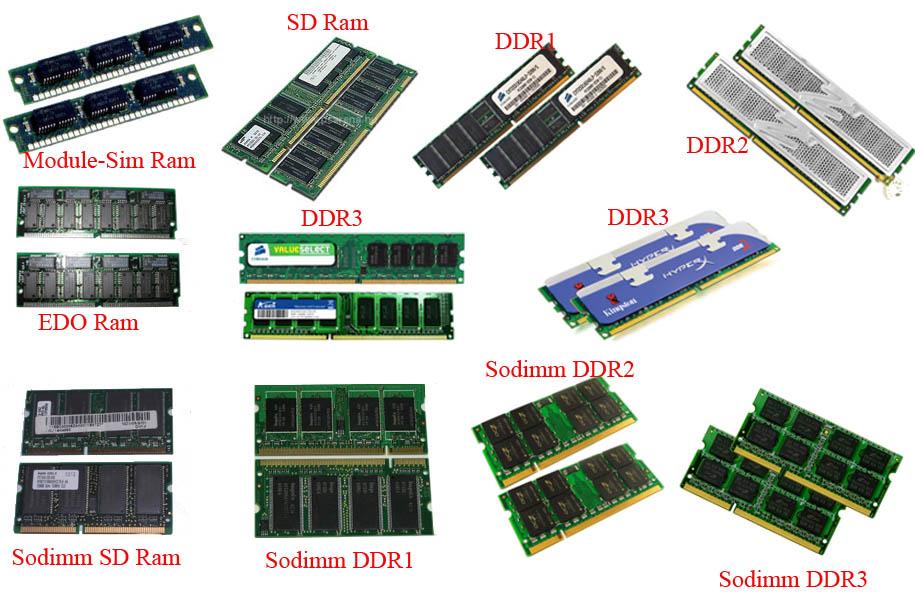 Between conventional memory and the processor is the main information exchange. They quite rightly believe that the RAM is the fastest device, after the processor, of course. In order for the computer to work “faster” and users feel comfortable, it is worth choosing regular memory, focusing not only on volume, but also on performance, especially on the type of memory and frequency of operation. These parameters must be compatible with the motherboard and processor. A good choice is to get conventional memory with low power consumption.
Between conventional memory and the processor is the main information exchange. They quite rightly believe that the RAM is the fastest device, after the processor, of course. In order for the computer to work “faster” and users feel comfortable, it is worth choosing regular memory, focusing not only on volume, but also on performance, especially on the type of memory and frequency of operation. These parameters must be compatible with the motherboard and processor. A good choice is to get conventional memory with low power consumption.
nine0003
Server RAM
The production of RAM sticks is tightly controlled at every stage — high quality is above all. After all, they must withstand high loads, since they are in servers operating in data centers. Therefore, server RAM is more productive and more reliable — this is what differs from conventional RAM. But due to the narrow specialization, the range in which it works productively and stably is limited, so server RAM is not suitable for every PC.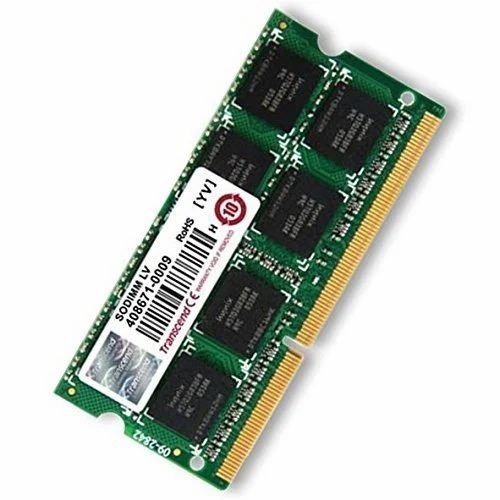
nine0003
The high reliability of server RAM is due to the specific features of the operation of server machines:
-
constant work under maximum loads;
-
continuous and long-term work for a long period of time;
-
increased fault tolerance;
nine0027
the maximum possible protection against unforeseen failures, data loss, information distortion.
The quality of data buffering is controlled by compact register memory. The memory chips are located on the bar. This is done with the aim that the most modern motherboards have RAM controllers of a specific size. The controller chip takes on the largest current load when at one moment you have to cope with numerous tasks: writing information, reading data, etc. The buffer chip of the register module of the server RAM just regulates, controls the change in capacity. Because of this: the equipment is reliably protected from failures and is able to work for a long period of time without repairs and other problems.
nine0003
Server RAM is simply indispensable for the normal and stable operation of business-critical applications on the server. If an error occurs during the processing of confidential data, financial transactions, it will really be a disaster.
What’s in common
RAM for a regular computer and a server performs the same tasks: it temporarily stores data to complete the tasks, ensures high-quality information exchange, and affects the speed of operations. Only in different conditions and at different workstations. Although the tasks set are almost the same, but their implementation is different, therefore, it is better to complete hardware and software systems with server memory, and personal computers with ordinary memory.
nine0003
What is the difference between server and regular RAM
There are several main differences:
- server ddr memory has a much narrower working specialization. Sticks often don’t fit most PCs;
-
a full-fledged server device is fundamentally different from a home, work or gaming computer in terms of daily tasks set and solved;
-
nine0002
the requirements for embedded electronic components are completely different due to their different uses. The difference is that register memory can correct errors, it has such built-in capabilities from the very beginning, so the operation of the main nodes is more stable and there are fewer failures, failures, downtime;
The difference is that register memory can correct errors, it has such built-in capabilities from the very beginning, so the operation of the main nodes is more stable and there are fewer failures, failures, downtime;
-
thanks to server memory, high resistance to failures of server machines is ensured, since it is specially “sharpened” for devices operating under high loads “without days off”, servers do not interrupt their work, therefore, complications in the workflow are excluded: due to downtime, obtaining false information ;
nine0003 -
effective buffering of server hardware is ensured by an additional compact microcircuit (register) of not ordinary, but server register memory;
-
price — cheaper than conventional RAM, more expensive — server RAM.
Even under extreme conditions, server hardware works as efficiently and smoothly as possible: when the load reaches peak values, increased heating occurs.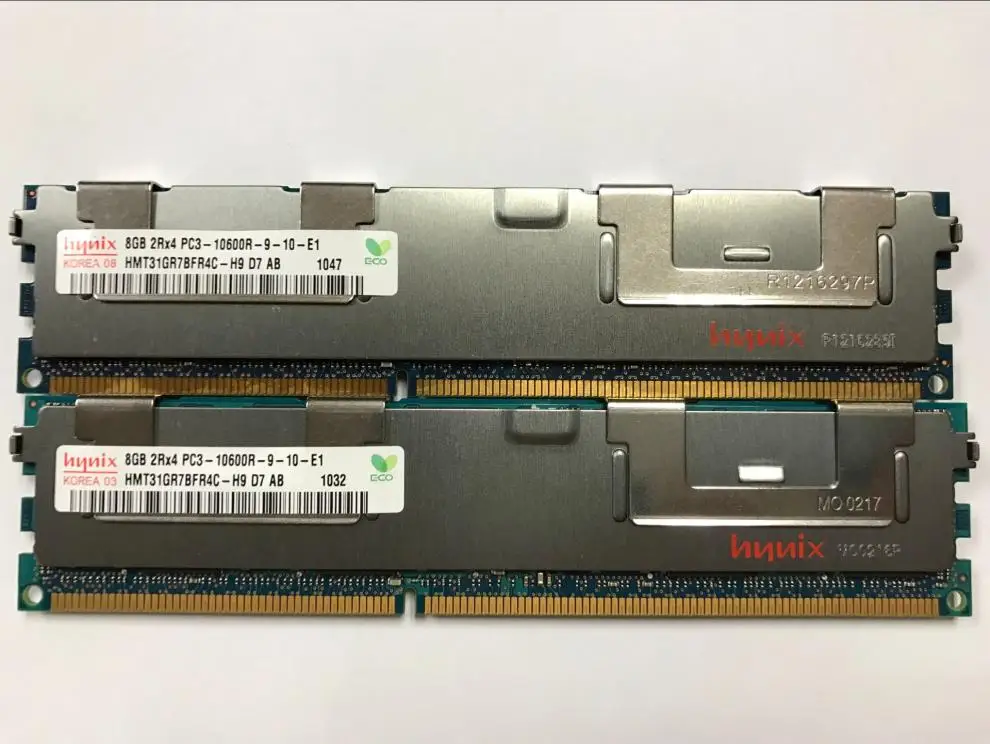 But, despite this, for personal computers it is better to choose a regular RAM, which is created for the needs of a particular device and guarantees its efficient operation. Registered memory can be equipped with a PC, if you first check that it is consistent with the motherboard, however, in terms of speed, the boards will be significantly inferior to conventional ones due to their specifics.
But, despite this, for personal computers it is better to choose a regular RAM, which is created for the needs of a particular device and guarantees its efficient operation. Registered memory can be equipped with a PC, if you first check that it is consistent with the motherboard, however, in terms of speed, the boards will be significantly inferior to conventional ones due to their specifics.
nine0003
Server and regular RAM: what are the differences?
Dear customers, please note that on December 29 and 30 we work until 14:00, and on January 2 from 10:00 to 16:00.
- Home
- Tips
- Server and regular RAM: what’s the difference?
This article is written for those who want to understand the fine line of differences between server and conventional RAM. Everything is far from being as easy and simple as it might seem at first glance.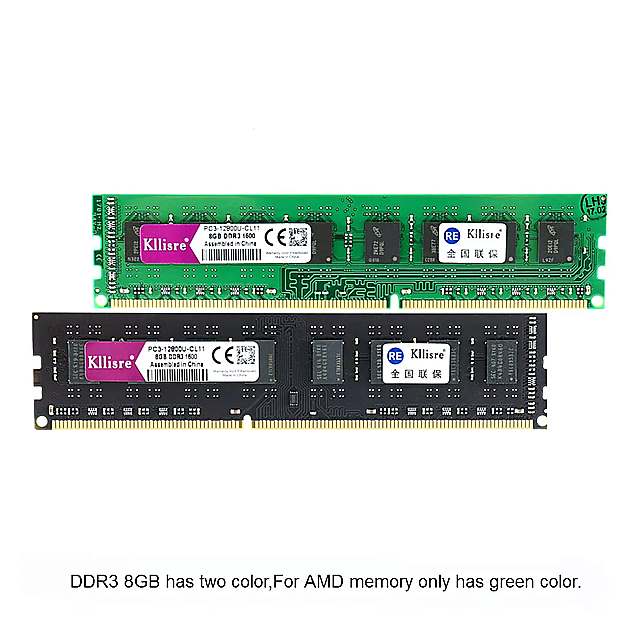 The question is not banal, because it would be very disappointing to spend the money earned on an electronic component, which, it turns out, will not be able to work effectively with your personal computer due to a number of nuances that are mainly inherent in RAM boards for servers. nine0003
The question is not banal, because it would be very disappointing to spend the money earned on an electronic component, which, it turns out, will not be able to work effectively with your personal computer due to a number of nuances that are mainly inherent in RAM boards for servers. nine0003
Buy server memory
Sometimes even the most expensive and best-performing RAM chip will not lead to an adequate upgrade. It may not lead to any noticeable improvements in the performance of your PC at all. This is despite the fact that you expected a real breakthrough and the onset of a «technical paradise» in a single apartment. Why are server boards for RAM attractive to us? Everything is simple. Servers in the data center are experiencing significant loads, their quality control is hundreds of times stricter, which means that they should a priori be more reliable than their «ordinary colleagues». nine0003
Alas, the principle “not all that glitters is gold” has not been canceled. The main focus is that RAM for servers has a rather narrow working specialization, therefore, they are not able to get along with all models of personal computers.
The main focus is that RAM for servers has a rather narrow working specialization, therefore, they are not able to get along with all models of personal computers.
Please note that a regular and gaming PC has a number of important differences from a full-fledged server in a modern data center. Let’s start with the fact that even the tasks that they have to solve daily are completely different. Therefore, the requirements for electronic components, especially the built-in type, vary significantly. nine0003
The server hardware assumes continuous operation. Almost any shutdown will lead to significant complications in the work and the receipt of not entirely reliable information due to data not taken into account due to downtime. So fault tolerance is just as important as our old familiar efficiency. Server DDR memory has a whole arsenal of cunning technical tricks in its arsenal so as not to let down your data center.
Here a well-equipped purely hardware support of the server plays a special role.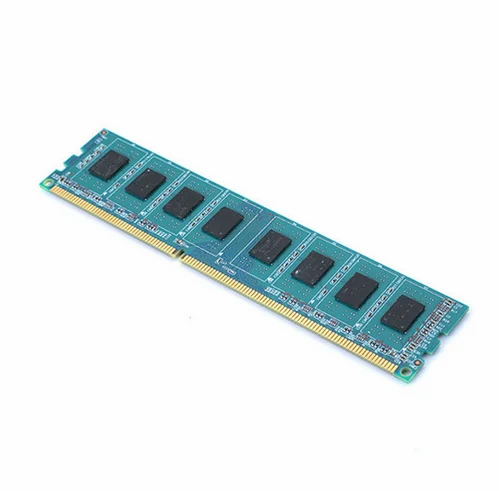 Even RAM is installed here not ordinary, but registered. On such a board, an additional component is installed in the form of a very compact microcircuit. It is she who is responsible for effective buffering. The central location of this add-on will immediately catch your eye. Uninterrupted operation is ensured by strict observance of the rule: there is always 1 buffer for 8 ordinary chips. nine0003
Even RAM is installed here not ordinary, but registered. On such a board, an additional component is installed in the form of a very compact microcircuit. It is she who is responsible for effective buffering. The central location of this add-on will immediately catch your eye. Uninterrupted operation is ensured by strict observance of the rule: there is always 1 buffer for 8 ordinary chips. nine0003
This state of affairs is justified. Modern motherboards have controllers for adequate RAM. Its volume is dictated by the tasks that are planned to be performed. In the mode of simultaneous execution of a number of tasks at the same time, it is this special chip that suffers from the maximum current loads. During such important processes as reading and writing data, an inevitable phenomenon occurs. The indicator of the electrical capacitance of this device changes. This function is handled successfully by the server’s memory module buffer. But this is possible only if it belongs to the registered variety.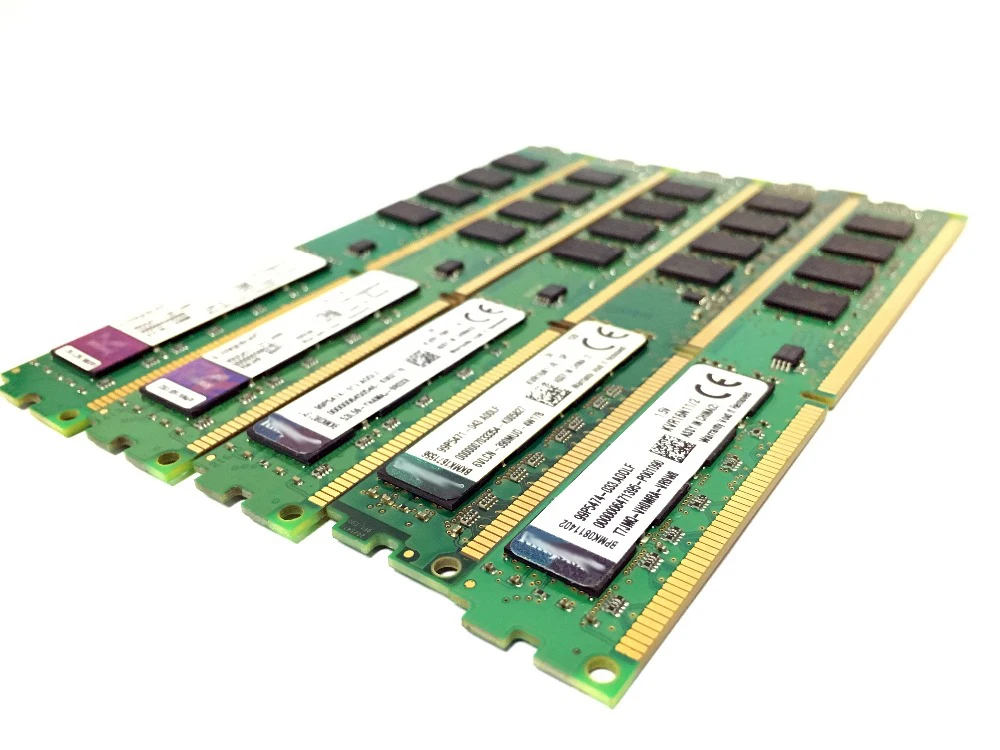 It is this strategy that allows servers to remain in working condition for a long time without additional costly expenses for repairs and maintenance. Everything works like a «Swiss watch». nine0003
It is this strategy that allows servers to remain in working condition for a long time without additional costly expenses for repairs and maintenance. Everything works like a «Swiss watch». nine0003
The software way of working also has a number of very critical differences. Everyone understands that when reading information stored in memory chips, errors are not ruled out. Usually external factors are to blame for this, which we cannot influence: solid cosmic and electromagnetic radiation. They are even capable of making major adjustments to the state of the bit of information itself.
It is difficult to fight this phenomenon, but it is possible to minimize the negative consequences of such events. ECC (Error Correcting Code) is provided for this. This is a specialized function for automatically finding and correcting in real time any errors that occur in the data structure, the so-called erroneous code correction. Currently, it can already be found on RAM boards for PCs. nine0003
Manufacturers have developed specialized algorithms for mathematical processing of digital code.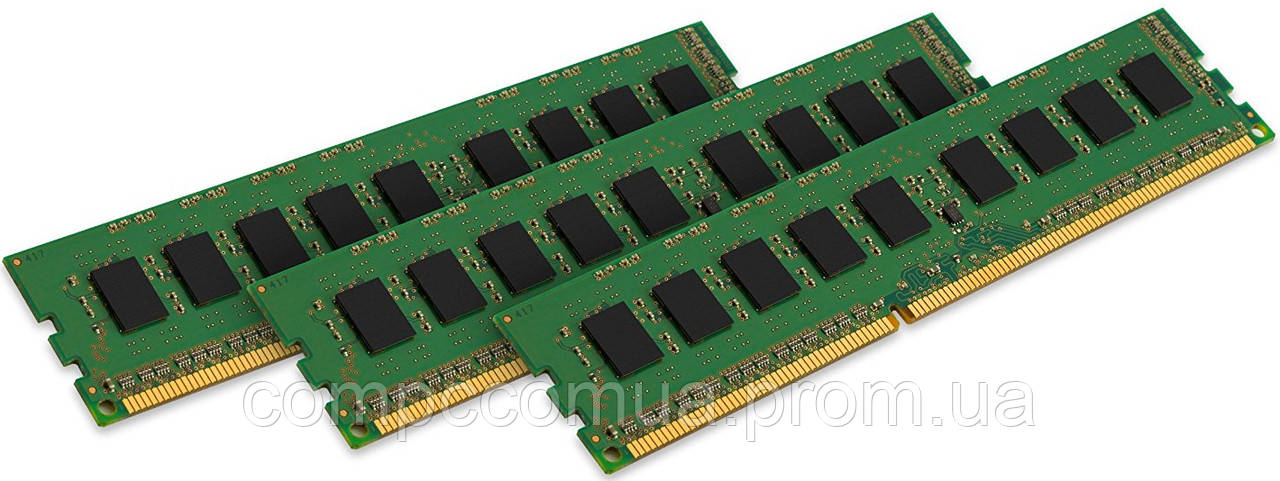 Errors are not only tracked as they occur, but are also corrected fairly quickly. Intervention on the part of the user or administrator in this case is not required, which is very convenient. This will ensure the stable operation of your server or computer even during dangerous times of peak loads.
Errors are not only tracked as they occur, but are also corrected fairly quickly. Intervention on the part of the user or administrator in this case is not required, which is very convenient. This will ensure the stable operation of your server or computer even during dangerous times of peak loads.
It is the stubborn resistance to the occurrence of RAM failures during operation that is very important for efficient and safe operation. Therefore, developers and engineers approached the issue with due degree of responsibility. Such stability is ensured by a whole range of measures. Special tests also come to the rescue. They allow you to check even before the RAM boards go on sale how these components for servers will behave in conditions of long operation, at peak load values and heating up to 100 ° C, how trouble-free and efficient they are even in such frankly extreme operating conditions. nine0003
It is also mandatory to check for compatibility with various software and server platforms.